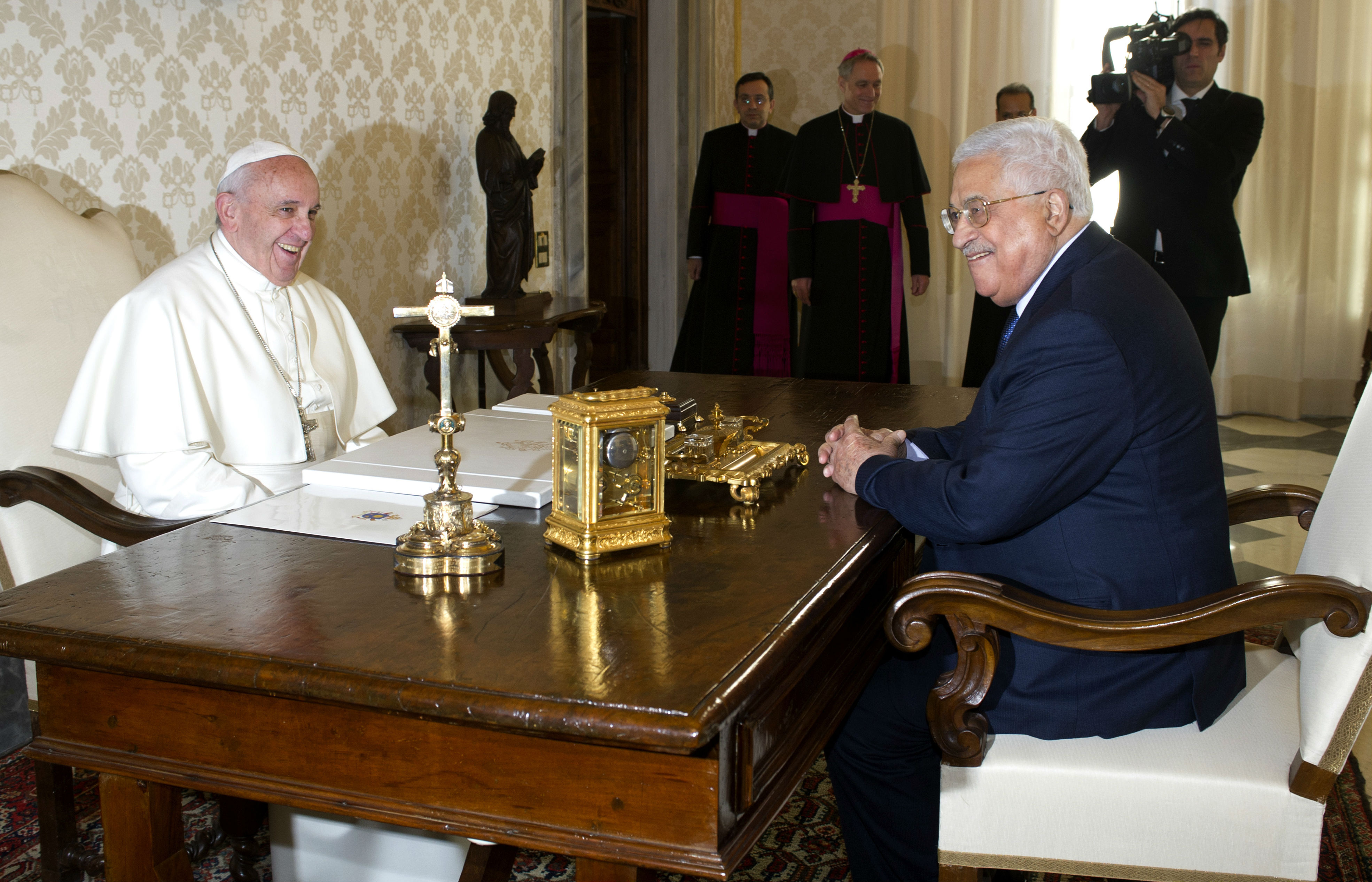Palestinian President Mahmoud Abbas met with Pope Francis on Saturday and thanked him for his support of the country's new embassy to the Holy See.
The embassy is a sign of improved relations between Palestine and the Holy See since June 2015 when the Vatican signed an agreement formally recognising the “State of Palestine”. The bilateral accord followed 15 years of negotiations that is said to provide juridical recognition for Catholic churches and calls for a two-state solution with Israel.
"This is a sign that the Pope loves the Palestinian people and loves peace," Abbas told the Pope at their meeting on 14 January before heading to the inauguration of the Palestinian embassy in Rome.
The Vatican said the two leaders spoke privately of the contribution of Catholics in Palestine and of their "promotion of human dignity and assistance for those most in need, especially in the fields of education, health and aid".
The Pope welcomed Abbas with open arms, embracing the president and saying: "It is a pleasure to welcome you here." "I am also happy to be here", Abbas replied.
The Pope and Abbas also discussed the peace process and expressed hope that "direct negotiations between the parties may be resumed to bring an end to the violence" and to find "a just and lasting solution".
"To this end, it is hoped that - with the support of the international community - measures can be taken that favour mutual trust and contribute to creating a climate that permits courageous decisions to be made in favour of peace," the Vatican said.
Their comments came a day before world leaders met in Paris to reaffirm their commitment to a two-state solution to the Israeli-Palestinian conflict.
In a sign of solidarity with the new US administration of President-elect Donald Trump, which has backed the Israeli government since winning the election, the UK failed to send a top-level delegation and instead attended as an observer and did not back the final communique.
A Foreign Office statement said: "We have particular reservations about an international conference intended to advance peace between the parties that does not involve them - indeed which is taking place against the wishes of the Israelis - and which is taking place just days before the transition to a new American President when the US will be the ultimate guarantor of any agreement."
Israeli Prime Minister Benjamin Netanyahu denounced the gathering as a "rigged conference" that seeks to adopt anti-Israeli policies. "This pushes peace backward. It's not going to obligate us. It's a relic of the past. It's a last gasp of the past before the future sets in," Netanyahu said just days before the conference, which he did not attend.
President-elect Trump's proposal to move the US embassy in Israel from Tel Aviv to Jerusalem is also a cause for concern for the Palestinian government as both states claim the city as their rightful capital.
The two-state solution would split the city and allow for Palestine to claim East Jerusalem as their capital. Israel, however, claims the entire city as its capital.
According to Palestinian news agency WAFA, Abbas wrote to Trump on 9 January and said the move was likely to have a "disastrous impact on the peace process, on the two-state solution and on the stability and security of the entire region."
Following his meeting with Pope Francis, President Abbas told journalists he hoped President-elect Trump would not move forward with the proposal.
"We are waiting to see if it happens. If it does it will not help peace and we hope it does not happen," Abbas said.
Despite the looming threats to the peace process, President Abbas said he hoped that the example set by the Palestinian agreement with the Vatican would encourage European countries to follow suit in order to achieve peace.
"I met his Holiness and (thanked him that) the Holy See has completely recognised Palestine as an independent state and I hope that other states will follow the Vatican's example and recognise the state of Palestine," Abbas said.
A Vatican statement released after the meeting said the two leaders also discussed the protection of holy sites "for believers of all three of the Abrahamic religions" and exchanged gifts.




 Loading ...
Loading ...